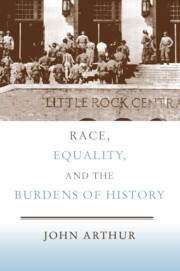8 - Affirmative Action and Equal Opportunity
Published online by Cambridge University Press: 03 December 2009
Summary
in distinguishing merit from other reasons for placing people in roles, I addressed one of the key objections to affirmative action. Although merit is important, race can sometimes be a qualification for a position. Affirmative action is therefore often, but not always, in opposition to merit. I have said little, however, about either the other reasons supporting affirmative action or about how those reasons are to be weighed against its supposed disadvantages. Those questions are the focus of the first half of this chapter. I assess the arguments that are relied on by affirmative action's defenders, and also recent work calling into question whether it does, in fact, benefit blacks.
But whatever conclusions are reached about affirmative action, another related question needs to be considered to complete the picture of racism, justice, and equality. Some argue that justice demands that everyone be provided with equal opportunities, while others believe that something less is required. Few deny that society owes those who cannot provide for themselves at least some opportunities – a decent public education, for example. This issue raises a host of problems, including the nature of the opportunities that are to be provided as well as their extent. If we support providing everyone with at least a minimum level of opportunities, what are the opportunities for? Answering that requires considering the nature of a successful life, as well as how opportunities to achieve it might be improved.
- Type
- Chapter
- Information
- Race, Equality, and the Burdens of History , pp. 256 - 301Publisher: Cambridge University PressPrint publication year: 2007

